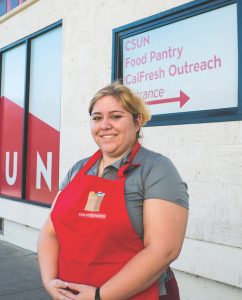Creating Just Justice Systems

Born and raised in Oakland, California, David Muhammad faced his fair share of challenges, finding himself both in the juvenile justice and child welfare systems. Fortunately, Muhammad had the support of a Bay Area organization, which provided a scholarship to study journalism at Howard University.
After graduation, Muhammad came back to California as a journalist and decided to pay his positive experience forward by teaching writing workshops at juvenile detention centers. He became so engulfed in the work, he decided to make helping incarcerated youth his life’s focus.
“The more I started teaching those workshops in juvenile hall, the more I saw the need, potential, and challenges of the justice system. And that’s become my life’s journey,” Muhammad says.
Muhammad now leads Oakland-based National Institute for Criminal Justice Reform (NICJR). The nonprofit provides consulting, technical assistance, and research to government agencies, community organizations, and foundations that are focused on bending the arc of juvenile and criminal justice to create systems that are actually just.
“Just being in the system has negative outcomes,” Muhammad says. “The youth in that system come from the same usually poor communities of color.”
An emphasis of the organization is a project it launched in 2020 focused on juvenile diversion. The Neighborhood Opportunity and Accountability Board, known as NOAB, was developed to provide an alternative to the juvenile justice system. Based on the modern principles of restorative justice, the project diverts youth accused of nonviolent felonies to appear before a board, not get entangled with the juvenile courts. The board is composed of community members from business owners to clergy to crime survivors who can provide young people with guidance and a chance to have their charges dismissed following completion of a tailored program. The aim is to support young people and increase public safety.
“Our purpose is to take the administration of justice back to the origins of town councils and elders, so there’s no adversarial system and punitive prisons,” Muhammad says. “It helps them to not further that behavior and to help them understand the impact they have made on any victims. Our current system doesn’t do that.”
Muhammad recalled sitting in on a board meeting with a young man who had been arrested for theft. His grandmother was there for support. After the meeting ended, the grandmother told the board members about her family’s struggle with incarceration and poverty. One of the board members had been formerly incarcerated himself and consoled her. He later asked the board if he could send the family $500 for support to help with their daily challenges.
“Without any exaggeration, every one of us was crying,” Muhammad remembers.
So far NOAB has 55 participants and is offered in Oakland and is expanding to nearby Richmond, Ca. But the NICJR aims to expand the program to more communities and start serving adults. Their hope is to provide a national model to be replicated across the U.S.
National Institute for Criminal Justice Reform
Donate now!nicjr.org
(818) 339-6928
Contact: Cheryl Bonacci
Mission
The National Institute for Criminal Justice Reform (NICJR) works to reduce incarceration and violence, improve the outcomes of system-involved youth and adults, and increase the capacity and expertise of the organizations that serve these individuals. NICJR provides technical assistance, consulting, research, organizational development, and advocacy in the fields of juvenile and criminal justice, youth development, and violence prevention. NICJR works with an array of organizations, including government agencies, nonprofit organizations, and philanthropic foundations.
Begin to Build a Relationship
We know you care about where your money goes and how it is used. Connect with this organization’s leadership in order to begin to build this important relationship. Your email will be sent directly to this organization’s Director of Development and/or Executive Director.
I know I made a mistake, so I’m just happy that I got the opportunity to make it right without havin’ to be locked up. This program helped me find a summer program that I really enjoy.
Funding for Families
The National Institute for Criminal Justice Reform’s goal is to reduce incarceration and violence and better the lives of youth and adults who are arrested.
To do so, the institute seeks $500,000 to help create a community and safety net for youth and their families who partake in the community board program. The money would help them with immediate needs, as many struggle with single-parent households and poverty.
Following positive feedback from Oakland leaders, the institute is also hoping to expand on its successful community board program. It costs $150,000 to launch and run a new program. NICJR is in talks with representatives of Los Angeles, San Bernardino, Fresno, and San Francisco counties to bring similar youth-focused restorative justice programs there.
Key Supporters
Microsoft
The California Wellness Foundation
The California Endowment
The Zellerbach Family Foundation
Public Welfare Foundation
Peter Graham
Sandra Friesen
Kristen Brown
Stephen Hull
Gordon Baranco
Catherine Nix
